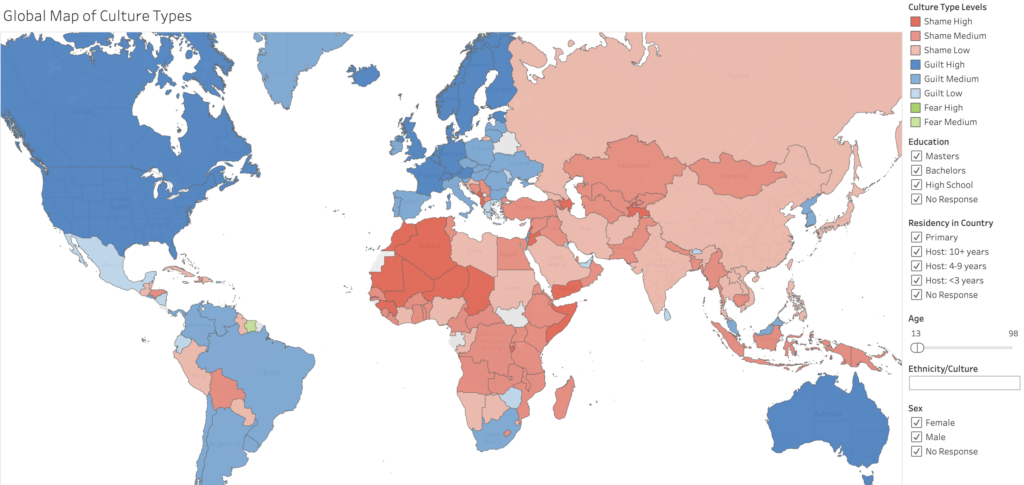People from different cultures and societies operate on different levels of what is considered to be normal. One of the most interesting classifications in this regard is the difference between shame and guilt societies. This classification impacts individual behavior, happiness, and efficiency.
In this article I describe the difference between two types. Hopefully, this will explain some things in your life, especially if you travel a lot or work in a multi-national organisations. The map below sheds the light on what we usually mean under shame and guilt societies.

What Are Shame and Guilt Societies
Shame societies rely on external social judgment to enforce norms. Individuals are motivated to behave correctly to avoid public disapproval or dishonor. Traditional cultures in East Asia, for example, often emphasize collective harmony and the importance of “saving face”.
Guilt societies, on the other hand, depend on internalized principles and personal conscience. Individuals in these societies strive to act ethically because of their internal sense of right and wrong. Western societies, particularly those that align with Christian and Enlightenment values, often align with this model.
Efficiency and Happiness
When evaluating efficiency, shame societies may be one step ahead. The community-driven pressure ensures quick alignment with norms, minimizing disruptive behavior. It can be beneficial in a time of trouble (it is easier to survive during poor job market conditions when you have strong bonds with others), but it negatively affects the creativity and spirit entrepreneurship when things are fine (“what others will think?”).
Guilt societies, while potentially slower to enforce norms, have a deeper sense of personal responsibility and freedom. This way individuals feel empowered to innovate and challenge existing norms, often leading to quicker change (either progress or degradation). The internalized nature of guilt-based systems also supports ethical behavior even when external supervision is absent, so it positively affects the levels of corruption and security.
In terms of happiness, guilt societies generally provide greater individual freedom, which can lead to a stronger sense of self-fulfillment and personal well-being. On the other hand, shame societies often create a tight community structure, which provides a sense of belonging and support but might also generate anxiety about meeting societal expectations.

Summary
Both shame and guilt societies have their strengths and weaknesses. There are no societies that are about guilt or shame only. However, it builds up certain expectations from people from another cultures, until you get to know the person better.